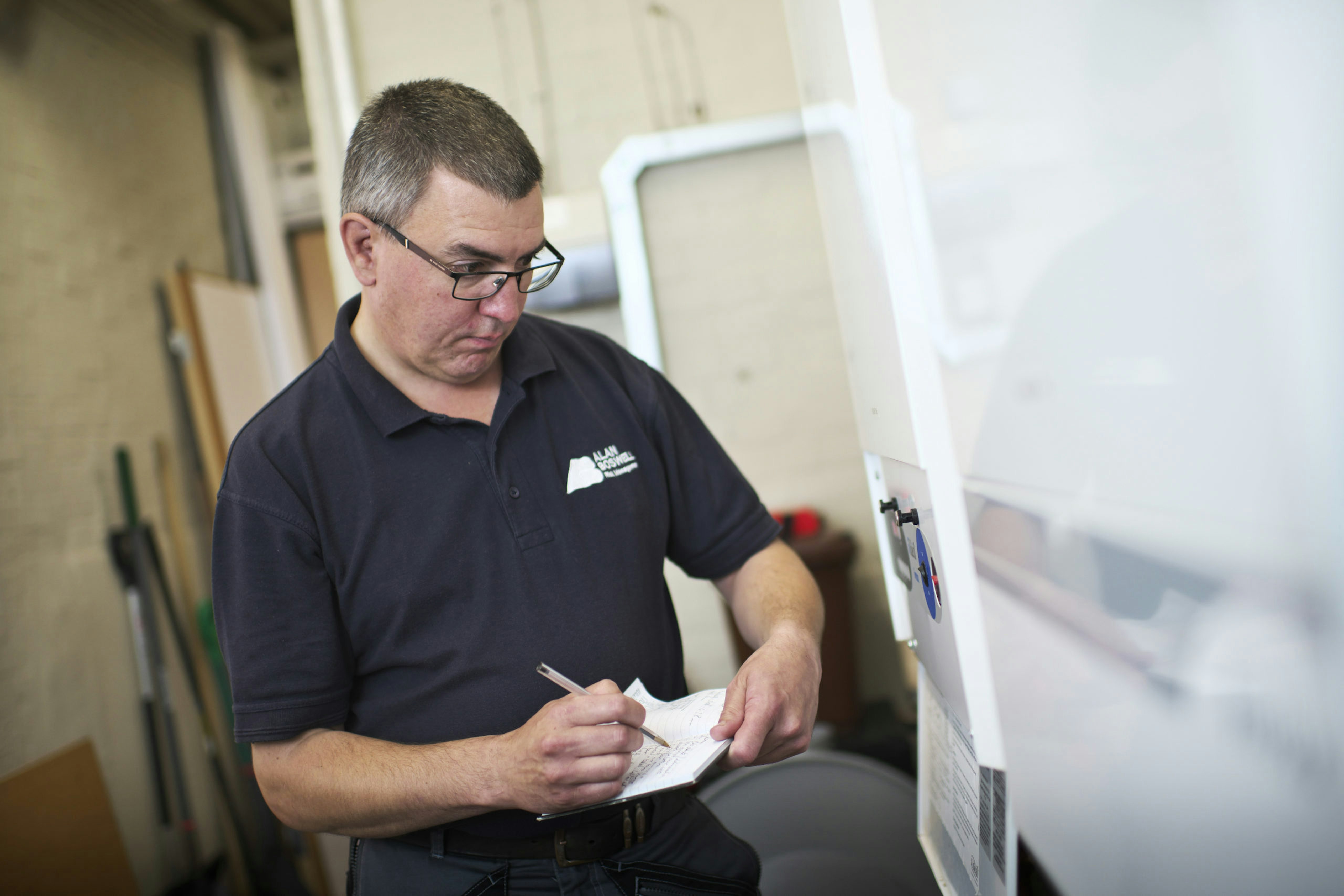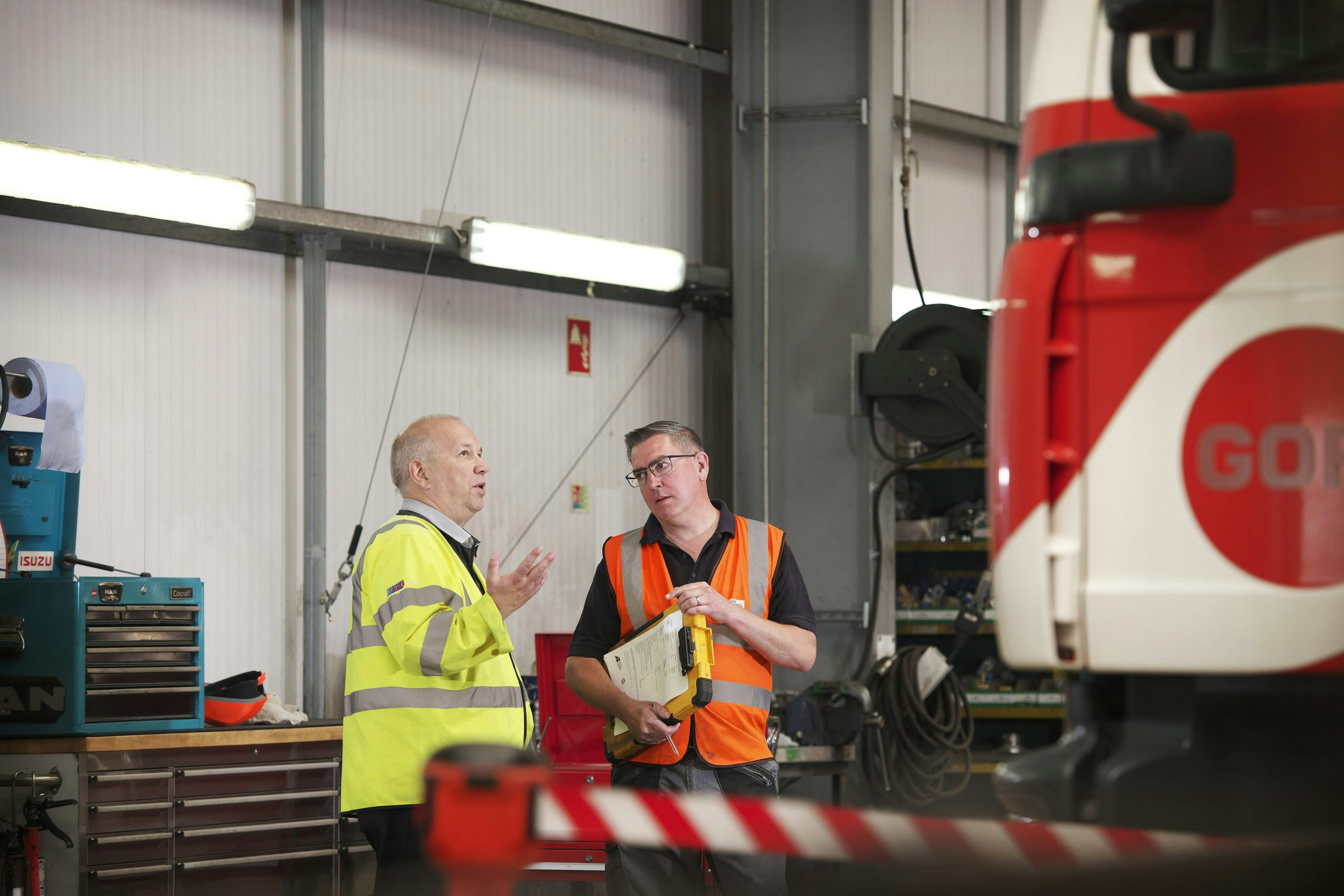8 things you need to know about engineering inspections
By Alan Boswell Group

If you’re a business using any type of equipment, we’re sure you know that you should be carrying out regular checks to make sure everything’s safe and in good working order. All work equipment and machinery should be subject to regular engineering inspections by competent engineers and maintained as set out in The Provision and Use of Work Equipment Regulations (PUWER).
What you may not be aware of is the failure to arrange these checks may mean you are served an improvement or prohibition notice by the authorities. In extreme cases, you may even be prosecuted.
And even if specialist engineering inspections aren't a legal requirement for your equipment, regular inspections constitute best practice. They improve workplace safety, may reduce the risk of legal action by the authorities, injured employees or site visitors -- and in some cases reduce your insurance premiums.
Below is a list of eight essential facts about engineering inspections to help make sure your workplace is safe and legally compliant.
1. Many different kinds of equipment require inspection
All plants, machinery and equipment require regular inspection. This includes electrical installations, lifting equipment, compressors and pressure systems, and local exhaust ventilation (LEV) systems.
Any items involving the use of hydraulics, wires, chains or ropes should also be inspected at pre-determined time parameters.
Employers and owners are all responsible for ensuring that appropriate inspections are carried out as often as required.
2. There are specific legal requirements for certain types of equipment
The Provision and Use of Work Equipment Regulations (PUWER) 1998 covers most work equipment where safety is at stake, including power presses.
The Lifting Operations and Lifting Equipment Regulations (LOLER) 1998 apply to all lifting and ancillary lifting equipment, including lifts, cranes and cherry pickers.
The Pressure Systems Safety Regulations (PSSR) 2000 apply to most work systems operating under pressure. These require owners and operators to establish safe operating limits with regards to pressure and temperature, as well as carrying out proper maintenance, providing clear operating instructions and ensuring inspections in line with an appropriate written scheme of examination. This must be put in place before the system is first operated.
The Control of Substances Hazardous to Health Regulations (COSHH) apply to equipment that takes away fumes, dust and vapours (LEV systems).
3. Engineering inspections are essential for workplace health and safety
Beyond merely meeting statutory requirements, however, regular inspections are essential for maintaining health and safety in the workplace. The regulations set out above are designed to ensure this. Regular engineering inspections are a major step toward ensuring your business is legally compliant.
Where items are not specifically covered by regulation, a risk assessment should be carried out in order to decide whether the equipment needs to be regularly inspected – and, if so, how often.
Beyond health and safety, a minor fault gone unnoticed can cause a breakdown of the whole system. The results can include loss of productivity, wasted time and an expensive bill for repair or replacement.
4. Regular engineering inspections can help to defend liability claims
Regular engineering inspections should prevent ... accidents happening in the first place
If someone is injured because a piece of machinery you are responsible for is faulty, whether they are an employee or a member of the public, they could sue your company for compensation. This kind of liability claim could cost thousands of pounds, depending on the severity of the accident. Regular engineering inspections should prevent such accidents happening in the first place. However, if they do occur, then evidence that the machinery in question was regularly and thoroughly inspected will help in defending against any claims.
Of course, if the law requires statutory inspections and these have not been undertaken then you will almost certainly be liable for prosecution. Even if inspections are not a legal obligation, proof they have been made will show that best practice has been adhered to and that the company was conscientious in making sure that the equipment was as safe as possible.
5. Inspections should be carried out regularly
The frequency of statutory engineering inspections will be clearly set out in the relevant regulation wording. If that is not the case, you must determine how often a piece of machinery should be inspected based on risk, likely rate of deterioration, how often it is used and so on.
A brand new piece of machinery will have been inspected before leaving the factory and/or wholesaler, but a date should be set for a thorough on-site inspection.
6. Inspections must be made by a qualified, independent body
All engineering inspections, whether mandatory or not, should be made by a person who is both competent and independent. They should possess the necessary knowledge to make an informed judgement as to whether the item is safe and fit for purpose, and should have appropriate accreditation to this effect.
They should also be from outside the company, with no conflict of interests. Their decision should be informed by the facts in front of them and not be influenced by any other considerations.
7. It is important to keep records
All engineering inspections should be logged and the results properly documented. Records and paperwork should be stored safely and securely. They must be readily accessible when required, such as at the next inspection date or in the event of an incident. The records are evidence that inspections have been carried out. They help demonstrate that you are meeting your legal obligations and fulfilling your duty of care regarding workplace health and safety.
8. Engineering inspections are a vital part of risk management
Alan Boswell Group can provide regular engineering inspections by qualified specialist engineering surveyors as part of an overall business risk management strategy. They will help you comply with your statutory requirements. Regular, thorough inspections, supported by comprehensive documentation are the backbone of risk management in the workplace.
Need help with your risk management?
Whether you need a quote, have a general enquiry, or want to talk it through over the phone, we're here to help.
Risk management enquiry
Related guides and insights

Prevention not reaction: how regular engineering inspections keep your farm and workers safe
Increasing emphasis is being placed on the value of on-farm checks of equipment. Lead Engineer, Simon Wyeld, explains what your legal responsibilities are, why it’s important to stick to an inspection schedule and how the team at ABRM can help keep you and your farm safe.

Staying safe in a challenging environment
Alan Boswell Risk Management (ABRM) has provided engineering inspections, health & safety audits and guidance to a variety of businesses. One of our most complex and well-known clients is Norwich Research Park.

Five reasons why you should use a risk management company
The COVID-19 pandemic has shone a spotlight on business Health & Safety. Read on for five reasons why appointing a specialist risk management company can keep your people and business safe.

Managing risk and ensuring safety: Goff Petroleum's partnership with Alan Boswell Group
We spoke to Keith Powney at Goff Petroleum about how Alan Boswell Group help them with their insurance and engineering inspections.
